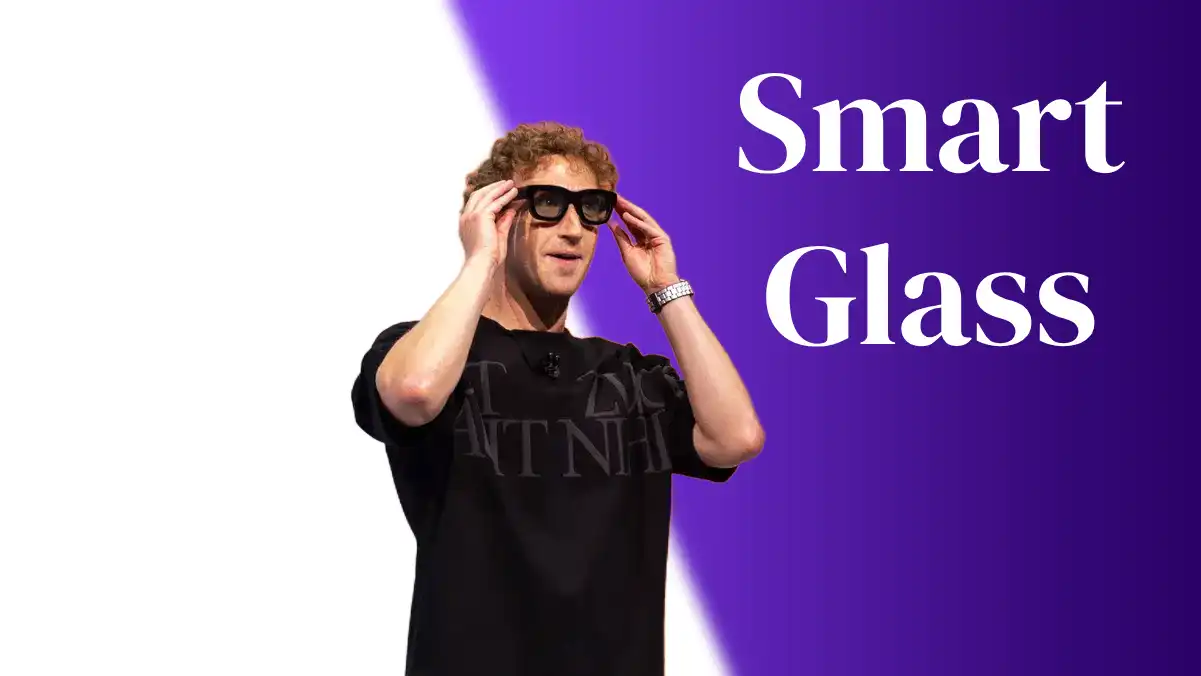Mark Zuckerberg Predicts the End of Smartphones
Mark Zuckerberg, CEO of Meta Platforms, has made a bold prediction: the era of smartphones is approaching its end, to be succeeded by advanced technologies like smart glasses. This transition is poised to revolutionize our interaction with the digital realm, moving beyond the handheld screens that have dominated our lives for nearly three decades.
The Rise of Smart Glasses
Meta’s ambitious project, Orion, unveiled at the Meta Connect 2024 event, represents a significant leap in augmented reality (AR) technology. These advanced smart glasses are designed to project holographic images into the real world, enabling users to perform tasks such as texting, calling, or navigating without the need for a traditional smartphone. Features like eye-tracking, voice commands, and hand gestures facilitate seamless interaction with digital content, aiming to replace smartphones as the primary gateway to the digital world.
In collaboration with Ray-Ban, Meta has also introduced the Ray-Ban Meta smart glasses, blending classic design with cutting-edge technology. Equipped with cameras, speakers, and voice control, these stylish frames serve as a stepping stone toward mainstream acceptance of AR wearables. As users grow accustomed to using glasses for music, photography, and calls, the transition from smartphones to smart glasses may become more intuitive.
The Shift from Smartphones
Smartphones have become integral to our daily routines, managing schedules, social interactions, and shopping habits. However, issues like constant notifications, screen fatigue, and the pressure to remain connected are leading to a reevaluation of their convenience. Tech insiders suggest that the next significant innovation lies not in upgrading smartphones but in replacing them entirely. Zuckerberg envisions a future where digital interactions—messages, calls, navigation, entertainment—are seamlessly integrated into our field of vision through smart glasses, eliminating the need to retrieve a device from our pockets.
Meta’s Orion: A Glimpse into the Future
Orion is not merely a gadget; it’s a sophisticated device designed to integrate digital experiences into daily life. With a large field of view and transparent lenses, Orion allows users to see digital content overlaid onto the physical world without obstructing their view. This design ensures that users can remain present and engaged with their surroundings while accessing digital information.
The Competitive Landscape
Meta is not alone in this endeavor. Apple’s Vision Pro headset, though bulkier and focused on mixed reality experiences, indicates Apple’s commitment to a future beyond smartphones. Other tech giants, including Google and Samsung, are also developing their own AI-powered smart glasses, all striving to liberate users from the confines of handheld devices.
The Role of AI and AR
The fusion of artificial intelligence (AI) and augmented reality (AR) is central to the functionality of smart glasses. Voice commands could replace touchscreen interactions, real-time translations might bridge language gaps instantly, and AI overlays could provide contextual information without prompting. This integration envisions a world where technology enhances reality without diverting attention to separate screens. For instance, navigation directions could appear directly in your line of sight, restaurant reviews might pop up as you glance at an establishment, and messages could be read without reaching for a device.
Challenges Ahead
Despite the promising advancements, several challenges remain before smart glasses can fully replace smartphones:
Battery Life and Processing Power: Developing lightweight devices with sufficient battery life and processing capabilities is a significant hurdle.
Privacy Concerns: The presence of always-on cameras and AI tracking raises questions about privacy and data security.
User Adoption: Transitioning from smartphones to smart glasses requires a cultural shift, as users must become comfortable with wearing technology on their faces.
Mark Zuckerberg Predicts the End of Smartphones
The Future Outlook
While smartphones are unlikely to disappear overnight, the evolution toward more integrated and less obtrusive technology is evident. Smart glasses represent a pivotal step in this direction, offering a more natural and immersive way to interact with digital content. As technology advances and societal acceptance grows, the line between the physical and digital worlds may blur, leading to a future where our devices are not just tools but seamless extensions of ourselves.
In conclusion, Mark Zuckerberg’s prediction signals a transformative period in personal technology. The development and adoption of smart glasses like Meta’s Orion and Ray-Ban Meta indicate a shift toward more integrated and immersive digital experiences. As AI and AR technologies continue to mature, we may find ourselves embracing a new paradigm where the digital world is seamlessly woven into the fabric of our everyday lives, rendering traditional smartphones obsolete.




